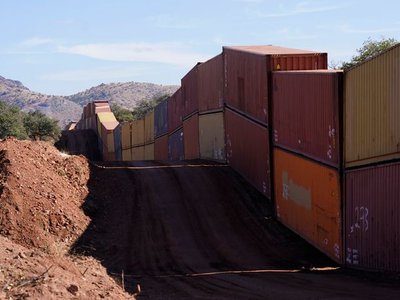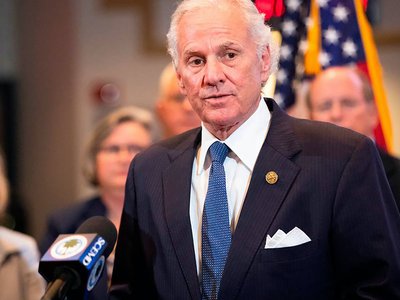I first drove the semi on my family’s farm when I was around 12 years old. My dad and I were leaving the field with a full load of corn, when he told me to take the wheel, giving his only advice before climbing down: "Make your corners wide."
From my family’s farm to the State Committee for the USDA Farm Service Agency to the House Agriculture Committee, I have worked in agriculture in some capacity since I could walk. Now as South Dakota’s governor, I serve alongside a third-generation cattle rancher, Lt. Gov. Larry Rhoden. We are the only farmer-rancher pair to lead a state’s executive branch, and we are both deeply concerned: America’s food supply system is at risk.
To keep our food supply consistent and affordable for all families, it is essential that no one else controls it. When another nation controls your food, it controls you. Our leaders recognized this threat and put in place risk management tools and programs to ensure Americans would never go hungry because of a foreign entity’s influence.
But for years now, foreign countries have been investing in our food supply chain, buying up the chemical and fertilizer companies that make American agriculture possible. Purchasing processing facilities, they have introduced vulnerability into the food supply chains Americans rely on to eat. Today, China is buying up millions of acres of land across the United States, following the same blueprint they have used in other countries for years.
While Americans have awakened to China’s military expansion and its grab for critical minerals worldwide, we have not yet realized our strategic vulnerability when it comes to our nation’s food supply.
The beef industry offers a telling example: Over time, the beef processing industry has consolidated into four mega-packers that now control 85 percent of America’s beef supply. That’s bad for competition and leads to higher prices at the grocery store. But now consider that two of these companies are based out of Brazil, and that one of them is JBS Foods. When JBS was hacked last May, 20 percent of America’s beef supply went offline overnight. That’s a strategic vulnerability that shouldn’t happen, but it did, and it will again if we don’t act to fix it.
Food production facility fires are also enormously disruptive events. A 2019 fire at the nation’s second-largest beef packing plant in Holcomb, Kansas shuttered the facility for four months; at that time, the plant was responsible for six percent of total daily beef slaughter. Whether 2022’s incidents are anomalous or the result of something more sinister, the point is we need more information.
Mainstream media outlets are busy attempting to lampoon anyone who expresses even the remotest concern about incidents at food processing facilities today. The repeated refrain is ‘there’s no evidence of any wrongdoing, so drop it.’ But absence of evidence is not evidence of absence.
Coming at a time of shortages in such everyday essentials as fuel, semiconductors, and even baby formula, the American people have every right to be skeptical and to demand answers about the incidents shutting down food facilities. Americans deserve to have their leaders treat disruptions in our food system – from foreign interference to fires to shortages – with concern.
Unfortunately, they’ve gotten the exact opposite from the Biden administration. U.S. AID Administrator Samantha Power even seemed to celebrate fertilizer shortages that will force farmers to "hasten transitions" to "natural solutions, like manure and compost." Shockingly, she also said the quiet part out loud: "Never let a crisis go to waste."
Congress needs to exercise its Article I power of the Constitution and hold hearings to investigate the security of America’s food supply. We need our trade agreements honored and antitrust laws enforced. We need policies that prioritize domestic production. We need to ensure that America’s food can’t be held hostage by anyone.
As governor, I have worked with producers and health regulators to cut anti-competitive red tape and let South Dakota’s producers ship across state-lines and invest in production facilities close to home. We need more of these common-sense, defensive measures at the national level.
America is much closer to the possibility of widespread food shortages than we think. Food security is our next crisis – and it may already be here.
Republican Kristi Noem is the 33rd governor of South Dakota and the first female governor of the Mount Rushmore State.






